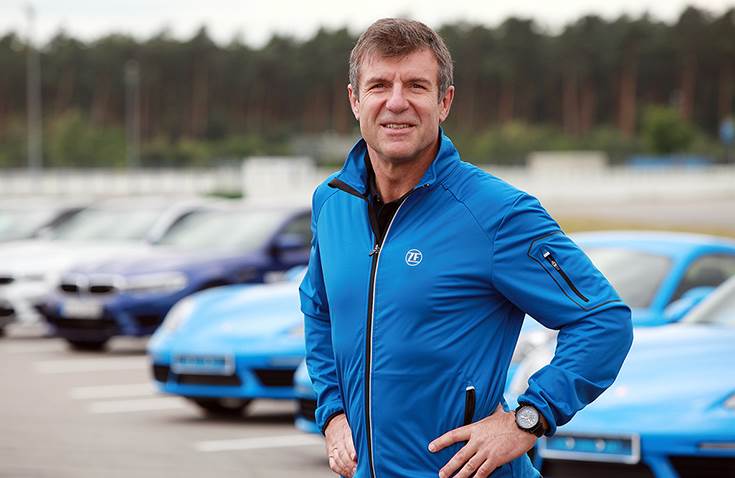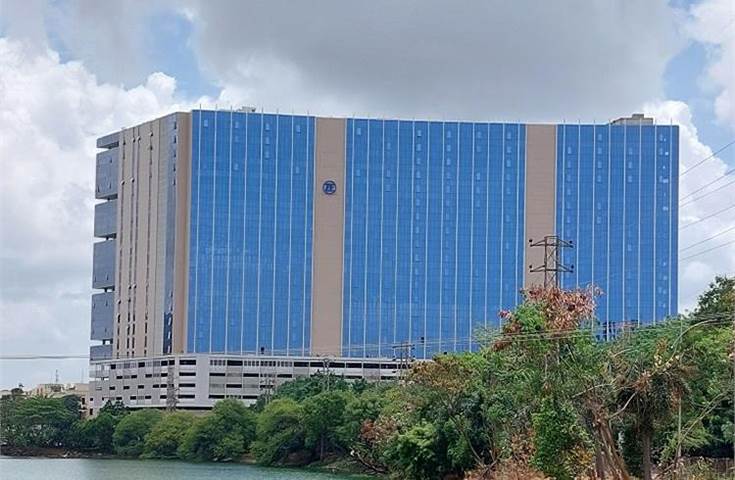German automotive Tier-1 major ZF, one of the largest global suppliers of active and passive safety systems for passenger cars, believes there is strong market potential for ESC (Electronic Stability Control) system supplies in India. The company is engaged in developmental work for future-oriented active safety technologies for vehicles at its Indian technical centre in Hyderabad.
ESC systems combine anti-lock brakes (ABS) and traction control with a lateral stability control function. These systems are specifically designed to help control and maintain the lateral stability of the vehicle. If a potential loss of vehicle control is sensed, ESC automatically applies brake pressure to the appropriate wheel(s) and, if necessary, cuts engine throttle to help bring the vehicle back in line with the driver’s intended path. An ESC system essentially counters oversteer or understeer in corners, or a loss of traction on slippery surfaces by braking individual wheels and even reducing engine power until stability and driver control is restored.
While ZF, at present, imports its ESC system into India to cater to the demand from OEMs, it is also exploring the technology’s localisation based on achieving certain levels of volumes that make it conducive to locally manufacture the life-saving technology in India.
Speaking to Autocar Professional, Manfred Meyer, Senior Vice-President, Engineering, ZF, said: “The demand for ESC is growing in India and it is also set to become a regulatory requirement in all passenger vehicles in the country very soon. While ZF has been offering this system for several years in the Indian market, we are now working very closely with OEMs.”

Manfred Meyer, SVP, Engineering, ZF: “The demand for ESC is growing in India. It is also set to become a regulatory requirement in all passenger vehicles in India very soon.”
According to Meyer, while ZF is receiving a number of new contracts from OEMs, it is currently sourcing ESC from its various locations around the world and will consider localising the technology in India when it reaches a “certain level of volumes.” However, he did not disclose the specific volume target the company is looking at but said ZF is seeing a marked uptick in the adoption of new active safety systems in Indian vehicles, including passenger cars and trucks.
“We are seeing the Indian automotive industry is adopting safety solutions such as ABS, Autonomous Emergency Braking (AEB) and ESC, irrespective of regulations, as these active safety solutions reduce the stopping distance and lower the number of road accidents,” he said.
“Even technologies like an Electronic Parking Brake or EPB that we pioneered in the Indian market is being picked up by OEMs in India. This clearly is a confirmation of the fact that the Indian automotive industry sees the value of adding safety systems to vehicles,” pointed out Meyer.
 Over 3,500 engineers at ZF’s India Tech Centre in Hyderabad are engaged in developing software and work on global projects for mechatronics, electronics and sensors. They also carry out simulation, testing and validation operations.
Over 3,500 engineers at ZF’s India Tech Centre in Hyderabad are engaged in developing software and work on global projects for mechatronics, electronics and sensors. They also carry out simulation, testing and validation operations.
India Tech Centre helping evolve vacuum-less brake controller
The German major is also leveraging the huge pool of software talent available in India to develop new active safety solutions for global markets. ZF’s Indian technical centre in Hyderabad employs over 3,500 engineers who are engaged in developing software and conducting global projects related to mechatronics, electronics, and sensors. They also carry out simulation, testing and validation for these safety-related systems.
“We are working on very advanced braking and steering projects which are going to be implemented in the global markets soon. These include developing the next-generation integrated braking controller which is extremely critical for brake-energy recuperation in EVs,” he revealed.
With a vacuum-less boost architecture, the integrated brake controller is the next step after ESC and offers highest advantages in hybrids and EVs to maximise the energy regenerated while braking.
“The tech centre is critically involved in the further development of the software functions for this technology and while the existing generation of the system is already in production in overseas markets and we have confirmed orders for the same, we are working closely with OEMs in India to introduce this technology in the next 2-3 years,” Meyer signed off.
